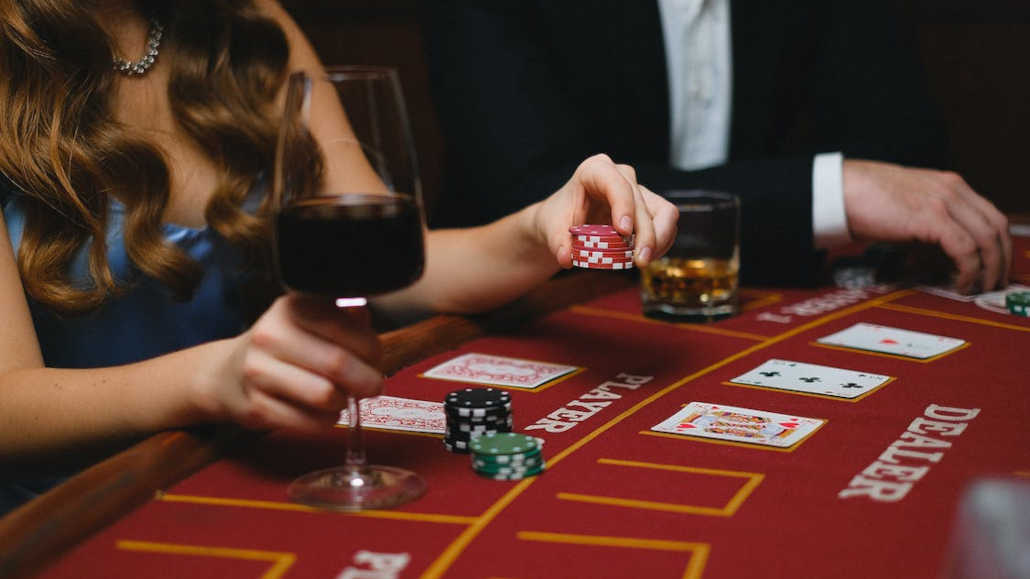A Link Between Gambling Games with Mathematics

Casino activities have captivated gamblers for decades, pulling them into a universe of excitement, fortune, and fortune. From the blinking lights of video slots to the strategic intensity of poker tables, these experiences offer a unique combination of fun and hazard. However, underneath the surface of this glitz and finesse lies a intricate relationship of math that shapes every outcome and action made within the casino.
Grasping this link between casino games and math merely boosts the playing experience but can also help gamblers make informed selections. Whether you are a occasional punter or a avid fan, recognizing the numerical strategies at play can offer insightful knowledge into chances, probabilities, and strategies, finally affecting how one deals with these games of luck.
Statistical Likelihood in Betting
In the realm of casino activities, mathematical probability plays a vital role in assessing outcomes and informing player decisions. Every activity has a unique set of rules and a particular probability model that influences its dynamics. For instance, in games like roulette, players must understand the probabilities of choosing a specific digit or shade. The likelihood of specific events occurring can be calculated, and this knowledge can substantially influence betting strategies.
Gambers also need to be cognizant of the casino edge, which is the mathematical advantage that gambling establishments hold over players in the long run. This advantage differs across different games. In 21, skilled players can use tactics to minimize the house advantage to as low as one percent, while in activities like slots, the house edge can be much higher. Understanding the house advantage allows players to make educated choices about which games to participate in and the amount to bet.
Moreover, likelihood is fundamental in the concept of danger versus reward in gambling. Every wager carries a certain danger level, and gamblers must evaluate the possible return against that danger. Games like the poker game require gamblers to not only calculate the chances of their personal showing winning but also to assess the likelihoods of their rivals’ hands. By applying statistical concepts to their gameplay, gamblers can improve their chances of success and engage more strategically in the exciting world of gambling games. https://broadgateinfo.net/
Expected Value in Gambling Activities
When talking about gambling activities, one of the fundamental concepts rooted in mathematics is the expected worth. This numerical metric helps gamblers grasp the possible outcomes of their bets over time. In simple terms, expected value (EV) calculates the average amount a player can expect to gain or lose per bet if they were to play the game repeatedly. Each game has its unique EV, influenced by the odds and the casino advantage, which signifies the benefit that the casino holds.
For example, consider a activity like roulette. The anticipated value can be derived based on the particular wager placed. If a gambler bets on a individual number, the return is 35 to 1, but the true chances of winning that bet are 1 in 37 (in European roulette). This leads in a detrimental anticipated value, showing that, on the whole, gamblers will incur a loss money over a period when playing this type of bet. nhà cái sin88 Understanding this concept allows players to make better educated choices about which activities and wagers may be less advantageous.
Additionally, the investigation of expected value can lead to better money management. Gamblers who comprehend the mathematics behind their games are often able to set practical expectations. By acknowledging their possible deficits and gains, they can modify their gambling strategies accordingly, which may enhance their overall gambling experience. As a consequence, expected value serves as a crucial tool for both novice and seasoned gamblers to steer through the often unpredictable character of casino games.
Strategies and Odds: The Mathematics Behind Success
In gambling games, grasping the odds is crucial for players seeking to enhance their chances of success. Each contest has its own unique set of probabilities that determine winning outcomes, and these figures are often found in the gaming rules or payout tables. For example, in activities like 21, players can enhance their probabilities through methods such as tracking cards, which is based on mathematical principles to gain an advantage over the establishment. By educating themselves with the probabilities, players can make more knowledgeable determinations on when to place bets and when to fold.
Moreover, the principle of expected value has a major part in gambling strategies. Expected value assesses the typical outcome of a stake over time, allowing participants to evaluate whether a specific bet is valuable taking. For example, slot machines have a set return percentage, which can indicate the average return a gambler can look for on their stakes. By opting for games with greater expected values, gamblers can reduce the house advantage, maximizing their possible rewards in the over time.
In conclusion, successful gamblers often employ a mix of luck and math strategy to enhance their gaming experience. While luck can’t be controlled, managing a staking plan based on calculative ideas can lead to more favorable outcomes. By utilizing techniques such as budgeting and picking games, participants can utilize math to maneuver through the random nature of gaming, making the most of their investments and money at the gaming tables.